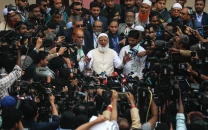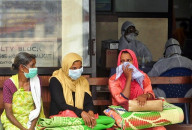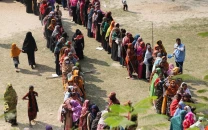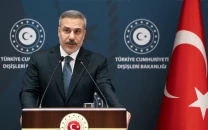Bangladesh to seek UN support to retain Women's T20 World Cup hosting rights
BCB has limited power over foreign governments, who control the lifting of travel bans and restrictions.
1723443177-0/cover_1723440440cover_1723185263FotoJet-(1)1723443177-0-640x480.webp)
Bangladesh's interim government is reaching out to the United Nations (UN) to secure its hosting rights for the upcoming Women's T20 World Cup, following concerns raised by several countries over travel safety.
Asif Mahmud, the government's youth and sports adviser, announced plans to engage the UN in discussions with nations that have imposed travel restrictions on their citizens visiting Bangladesh.
The International Cricket Council (ICC) has informed the participating cricket boards that it is closely monitoring the situation in Bangladesh.
Although the ICC has not yet decided to relocate the tournament, it has stated that all options remain open. Currently, governments from Australia, the United Kingdom, India, and New Zealand have either advised against or banned travel to Bangladesh due to security concerns.
Sources within the Bangladesh Cricket Board (BCB) have identified these travel restrictions as the primary challenge to hosting the tournament.
The BCB, however, has limited power to influence the decisions of these foreign governments, which hold the authority to lift any travel bans or restrictions.
"There are travel restrictions for some countries, so we will speak with the United Nations. We will address security and infrastructure concerns with Professor Yunus, the chief adviser to Bangladesh's interim government.
He is a sports lover, and we hope he can resolve the matter," Mahmud stated.
This development comes at a challenging time for the BCB, which is grappling with an internal crisis.
BCB President Nazmul Hassan, who also served as a former sports minister, has been missing since the fall of the Awami League government on August 5.
Several other board directors, some with political ties, are also untraceable.
Mahmud mentioned the possibility of forming an interim body to manage the BCB but emphasized the need for the board's autonomy in decision-making.
"The BCB president is missing, and for a federation to function, all its organs need to work. The BCB is an autonomous federation, and we cannot impose decisions on them," Mahmud said.
"We have suggested to the BCB directors to explore solutions within the ICC's legal framework. They will report back to us on whether an interim appointment is necessary. We will continue this process," he added.
Mahmud also emphasized the need for systemic improvements rather than just personnel changes. "We want to make necessary changes, but we need to follow a process".
:Our goal is to change the system to prevent corruption, ensuring that whoever follows the system can make lasting improvements," he concluded.



















COMMENTS
Comments are moderated and generally will be posted if they are on-topic and not abusive.
For more information, please see our Comments FAQ